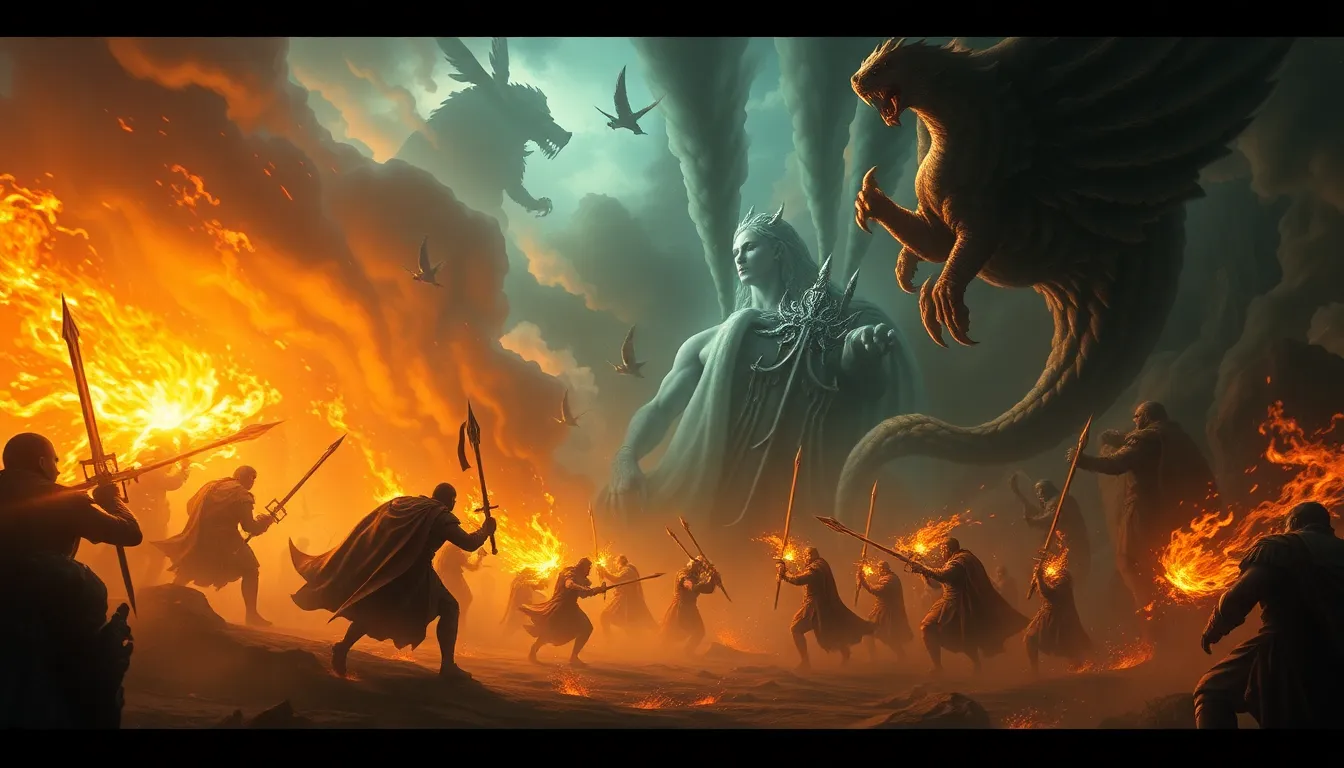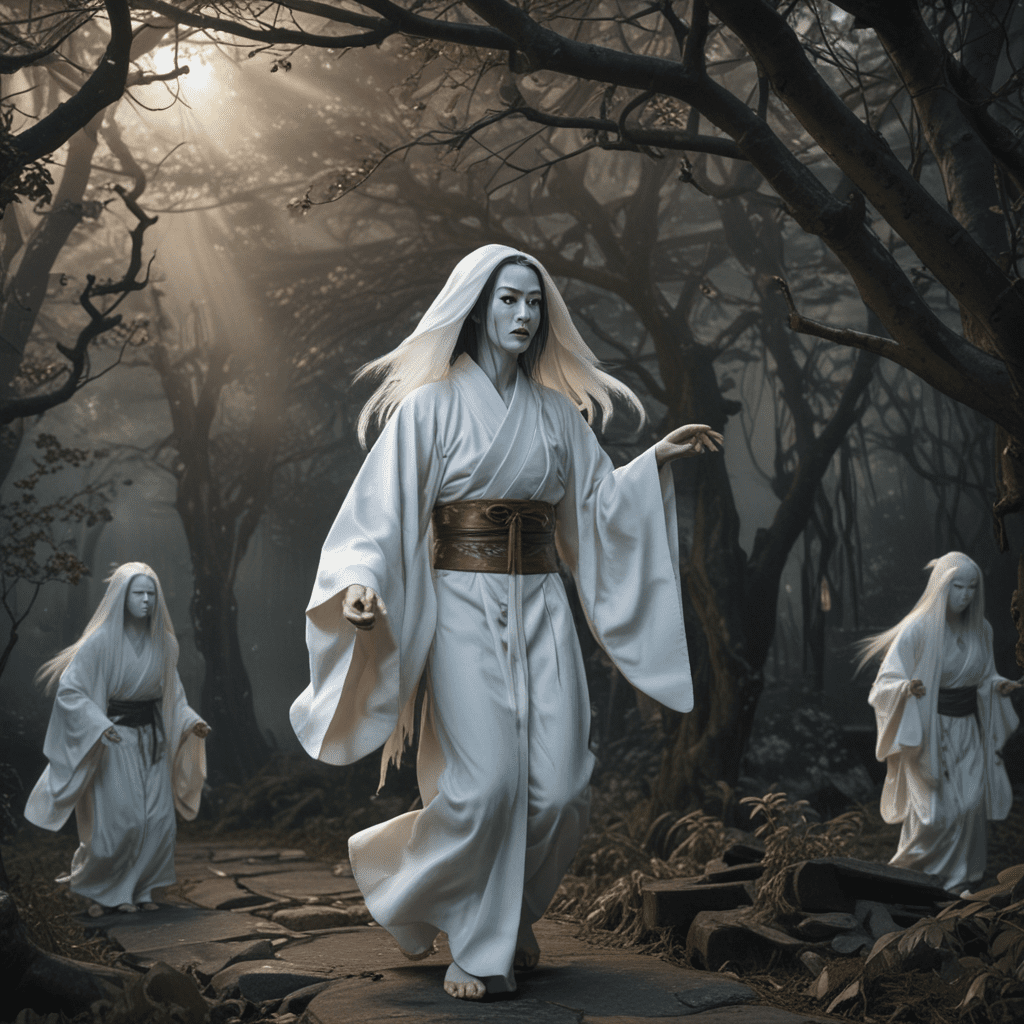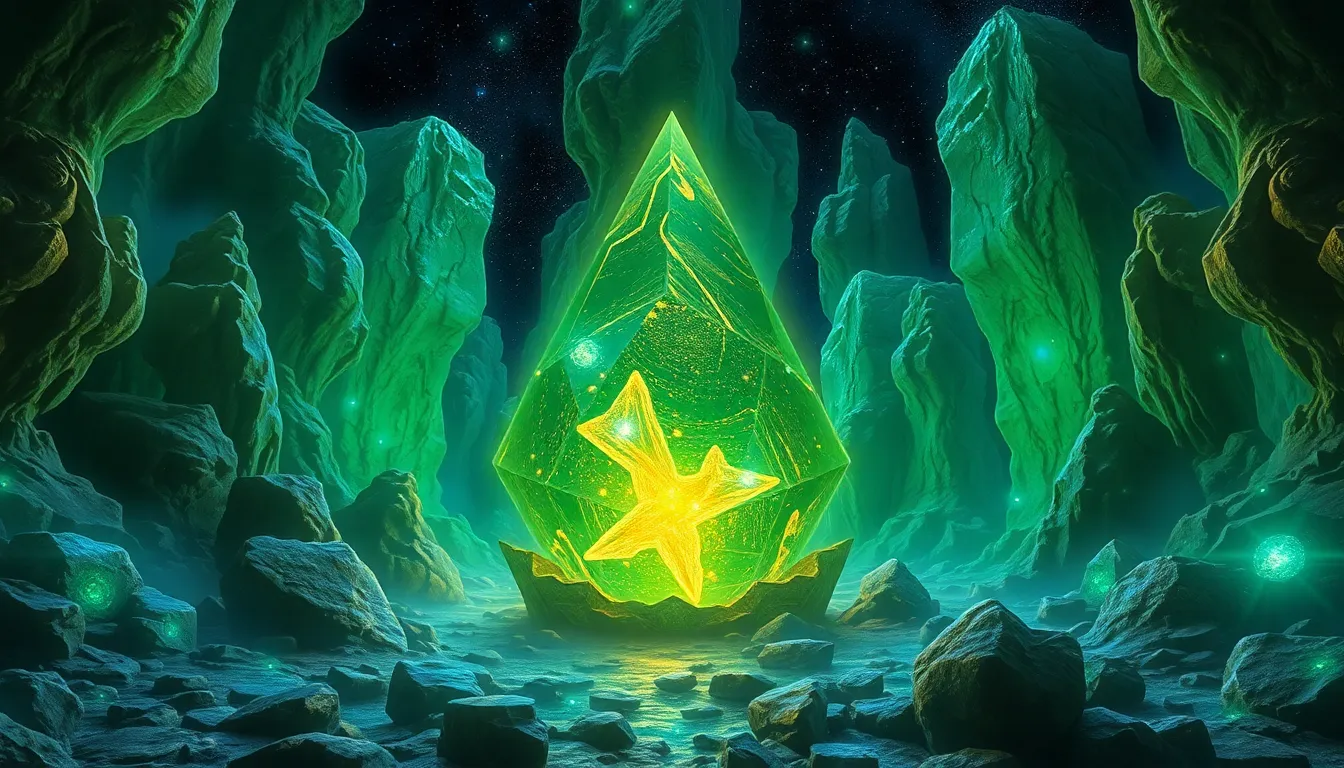Divine Warfare: The Greatest Battles of the Gods
I. Introduction to Divine Warfare
Divine warfare refers to the epic battles fought between deities across various mythologies, showcasing the struggles for power, morality, and the very essence of existence. These conflicts often reflect the cultural values and beliefs of the societies from which they originate.
The importance of battles in mythological contexts cannot be overstated; they serve as allegories for human struggles, illustrating themes of good versus evil, chaos versus order, and the cyclical nature of life and death. In this article, we will explore some of the most significant divine battles across different cultures, examining their impact on mythology and their lasting legacy.
II. The Pantheon of Gods: Who Fights?
Various mythological pantheons around the world feature a rich diversity of gods and goddesses who engage in divine warfare. Here are some of the most notable:
- Greek Pantheon: Zeus, Hera, Poseidon, Hades, and the Titans.
- Norse Pantheon: Odin, Thor, Loki, and the giants.
- Hindu Pantheon: Vishnu, Shiva, Durga, and various Asuras.
- Egyptian Pantheon: Osiris, Set, Isis, and Horus.
In these pantheons, key deities often take center stage in battles, while lesser gods and spirits may influence events from the sidelines, offering assistance or hindrance to the main actors of the divine drama.
III. The Titanomachy: Clash of the Titans
The Titanomachy represents one of the most significant conflicts in Greek mythology, marking the war between the Titans and the Olympian gods. This epic clash arose from the Titans’ rule over the cosmos, which was challenged by the younger generation of gods led by Zeus.
The key players in this conflict included:
- Zeus: Leader of the Olympians.
- Cronus: Leader of the Titans, father of Zeus.
- Hades and Poseidon: Zeus’s brothers who fought alongside him.
The outcome of the Titanomachy saw the Olympian gods victorious, resulting in the imprisonment of the Titans in Tartarus. This victory not only established the Olympians as the primary deities of Greek mythology but also set the stage for future conflicts and the development of myths surrounding justice, power, and governance among the gods.
IV. Ragnarok: The End of the Gods
Ragnarok signifies the Norse apocalypse, a cataclysmic event that foretells the end of the world and the death of numerous gods. It is characterized by a series of battles, natural disasters, and the ultimate destruction of the cosmos.
Major battles during Ragnarok include:
- Odin vs. Fenrir: The great wolf Fenrir devours Odin.
- Thor vs. Jormungandr: Thor battles the Midgard serpent.
- Heimdall vs. Loki: The two guardians face off in a climactic duel.
The significance of these battles lies in their embodiment of the cycle of death and rebirth, a recurring theme in Norse mythology. After the destruction, it is prophesied that the world will be reborn, symbolizing hope and renewal despite the chaos.
V. The Mahabharata: A Divine War Among Mortals
The Mahabharata is one of the longest epics in the world, detailing the story of the Kurukshetra War, a monumental conflict between two branches of a royal family. This epic not only showcases human conflict but also highlights the involvement of divine beings in mortal affairs.
Key characters include:
- Krishna: The divine charioteer and guide of Arjuna.
- Arjuna: A warrior prince and hero of the epic.
- Kauravas: The antagonists of the story, representing evil and ambition.
The role of the gods is pivotal, as they intervene in mortal affairs to uphold dharma (righteousness). The teachings of Krishna in the Bhagavad Gita highlight the moral complexities of warfare and duty, offering profound lessons on ethics and the nature of life.
VI. The Battle of Kurukshetra: Divine Intervention
Within the Mahabharata, the Battle of Kurukshetra stands as a pivotal moment of divine intervention. Krishna, as Arjuna’s charioteer, plays a crucial role in guiding him through moral dilemmas and combat strategies.
The concept of dharma in warfare is deeply explored, emphasizing the importance of righteous action even in the face of conflict. The consequences of this battle reverberate through generations, shaping the moral landscape of Indian culture and philosophy.
VII. The War of the Gods: Egyptian Mythology
In Egyptian mythology, the struggle for power between Osiris and Set is a prominent narrative. Set, the god of chaos and disorder, murders his brother Osiris to claim the throne of Egypt.
The symbolism of life, death, and resurrection is central to this myth. Osiris represents fertility and regeneration, while Set embodies chaos, reflecting the duality of existence. The subsequent resurrection of Osiris by Isis reinforces themes of hope and continuity, significantly influencing ancient Egyptian culture and religion.
VIII. The Epic of Gilgamesh: Divine Rivalry
The Epic of Gilgamesh narrates the journey of Gilgamesh, a king who seeks immortality. Throughout his adventures, he encounters various divine beings, including the wild man Enkidu, who becomes his close friend.
The role of the gods in this narrative is multifaceted, serving both as adversaries and allies. Themes of friendship, mortality, and the will of the divine play a crucial role, illustrating the complexities of human existence in relation to the divine.
IX. Modern Interpretations and Adaptations
Divine warfare continues to inspire contemporary literature and film, offering rich material for storytelling. Modern adaptations often reinterpret these mythological battles, exploring their relevance in current contexts.
- Literature: Works like Neil Gaiman’s “American Gods” blend mythology with modern themes.
- Film: Movies such as “Clash of the Titans” and “Thor” bring ancient stories to life with contemporary visuals.
- Video Games: Titles like “God of War” engage players with mythological narratives.
The fascination with these myths persists, as they provide insights into human nature, conflict, and the eternal struggle between forces of good and evil.
X. Conclusion: The Legacy of Divine Warfare
The exploration of divine warfare reveals a tapestry of human experience, interwoven with the struggles of gods. From the Titanomachy to Ragnarok, and the conflicts in the Mahabharata and Egyptian mythology, these battles encapsulate fundamental themes of power, morality, and the cyclical nature of existence.
The enduring fascination with mythological conflicts speaks to humanity’s quest for understanding in the face of chaos. As we reflect on the roles of deities in these stories, we gain valuable insights into our own conflicts, aspirations, and the universal search for meaning in the divine and the mortal realms.



